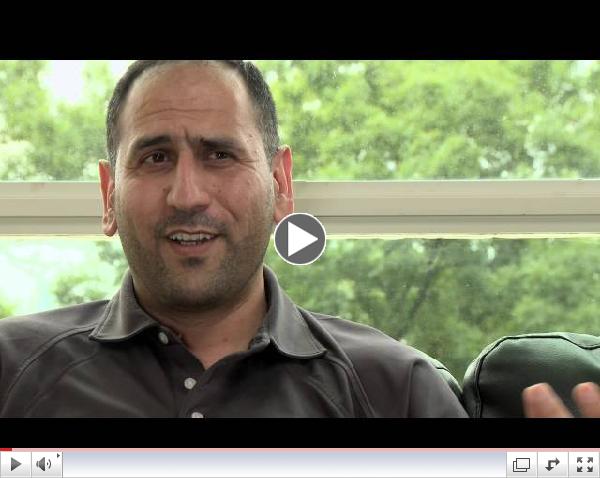|
 |
|
 |
Action
Defend our Freedom
A Day of Action to Stop the Secret Police Bill C-51
 This Saturday March 14, people will gather together in communities across Canada for an emergency day of action to stop the government's "secret police" law.
|
 |
Action
Canadian security bill puts your rights at risk
Amnesty International Canada - Bill C-51, The Anti-Terrorism Act, forms the core of the most comprehensive reforms to the Canada 's national security laws since 2001. Widely expanded powers and new criminal offences raise serious human rights concerns.  Send a message to the Minister for Public Safety calling on him to withdraw Bill C-51 and ensure human rights. 
|
 |
Action
Send a letter to the editor about "secret police" bill C-51!
OpenMedia - Stephen Harper's Secret Police Bill C-51 is reckless, dangerous, and ineffective. Harper is trying to ram it through Parliament right  now. Let's each take a moment to spread the word in our communities by publishing a letter in local newspapers through this easy-to-use tool. 
|
|
 |
|
 |
Action
Reject fear. Stop Harper's "secret police" bill C-51!
LeadNow.ca - We call on Party leaders and MPs to reject Stephen Harper's fear campaign and stop the bill, unless it's amended to: -- Include strong safeguards for Canadians, including a dedicated, high-level Parliamentary committee to oversee our spy agencies. -- Strip out the outrageous attacks on civil liberties, including the sweeping expansion of spy powers, criminalization of speech, and preventative arrest for those who have committed no crime. -- Clarify that the vague parts of the bill, to be certain it will only be used to target people who pose a violent threat to the lives and physical security of people Video on Facebook 
|
|
 |
|
 |
Film
The Secret Trial 5 Canada-wide tour dates announced!
The ST5 team - We are once again facing a move to place perceived security before individual freedom and, as as our film documents, these tactics have very real human consequences. A recent poll suggested that 80% of Canadians agree with Bill  C-51 despite criticism from all over the political spectrum. We aim to change that one tour stop at a time. We believe wholeheartedly that when Canadians see the story of The Secret Trial 5, they will be moved by their sense of compassion, not fear. From March 12th to 26th, 2015 in most major Canadian cities! Tous les détails
|
|
 |
|
 |
Action
Signez la pétition pour libérer le blogueur saoudien Raif Badawi
 Amnistie internationale - Raif Badawi, prisonnier d'opinion en Arabie saoudite, risque la mort pour avoir offert un débat sur la liberté religieuse. Exigeons des autorités saoudiennes que les coups de fouet cessent immédiatement, que Raif soit libéré sans condition, et qu'il soit réuni avec sa famille réfugiée au Canada. Exigeons de cet État qu'il respecte ses obligations en matière de droits humains et qu'il abolisse la flagellation.  English petition English petition
|
|
Les opinions exprimées ne reflètent pas nécessairement les positions de la CSILC - The views expressed do not necessarily reflect the positions of ICLMG
|
|
The News Digest is ICLMG's weekly publication of news articles, events, calls to action and much more regarding national security, anti-terrorism, and civil liberties. The ICLMG is a national coalition of thirty-eight Canadian civil society organizations that was established in the aftermath of the September, 2001 terrorist attacks in the United States. +++
La revue de l'actualité est notre publication hebdomadaire de nouvelles, d'évènements, d'appels à l'action, et beaucoup plus, entourant la sécurité nationale, la lutte au terrorisme, et les libertés civiles. La CSILC est une coalition nationale de 38 organisations de la société civile canadienne qui a été créée suite aux attentats terroristes de septembre 2001 aux États-Unis.
|
|